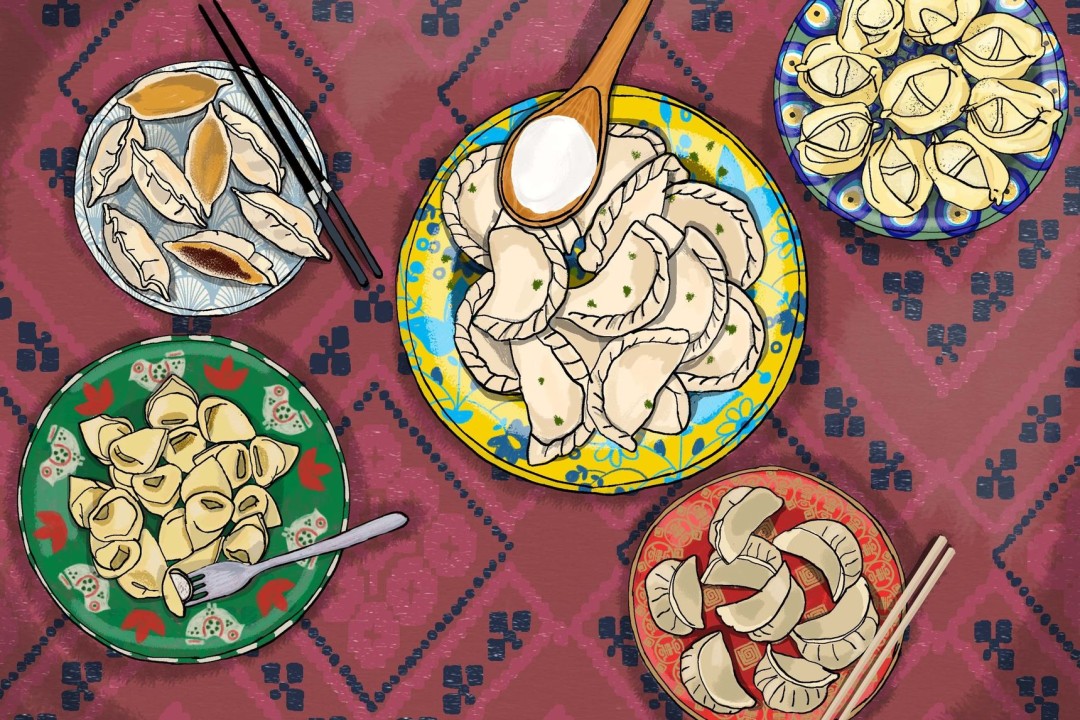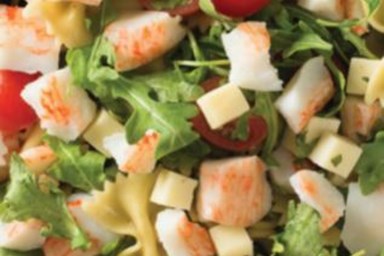March 28, 2022
The Familiar Love Language of Dumplings

I have a soft spot for dumplings. So, it should come as no surprise that when I saw a recent Wall Street Journal article headlined “United by the World’s Dumplings,” I immediately clicked (great bait, WSJ). The article highlights a long-held belief I’ve had, self-affirmed-foodie that I am: that there’s more similarities in our global diets than there are differences. And, if we focus on those similarities in our deeply-personal food choices, perhaps we’ll create a domino effect on the quest for world peace.
The author describes in mouth-watering detail the popular traditional Ukrainian dumpling: Varenyky. As the author writes, “Varenyky are a kind of Ukrainian dumpling. They are made from a simple wheat dough, rolled and shaped into half-moons, and stuffed with various fillings before being boiled and served with lashings of melted butter and sour cream.”
Uh, yum. (I’m sorry but anything with butter and sour cream…am I right?!?)
The author noted that, even without never consuming Varenyky, she was instantly reminded of ricotta-filled tortellini in Italy, Shui Mai and other dumplings in China, and even Goyza from Japan. “Each of these dumplings is subtly different in form and content—some are crimped and some are folded, some are stuffed with vegetables or meat instead of cheese—but in some essential way, they are the same. They all consist of a silky dough formed into little parcels stuffed with a savory filling and then boiled,” she notes.
The well-reasoned argument follows that from dumplings to breads (naan, tortillas, scallion pancakes) or even eggplant-based dips in Europe and the Middle East, there are more “families” of foods than true individual dishes. And those families all inter-related, whether we want to own up to those connections or not.
Simply put, our global culinary similarities far outweigh our differences.
It’s interesting to think about the big, bold, interconnected world especially in light of the report that the Association of Genuine Alaska Pollock Producers (GAPP) released last week. The report, which we’ve affectionately named “Wild Alaska Pollock 2040,” details the comprehensive research conducted by McKinley Research to uncover the most promising international markets for future Wild Alaska Pollock demand.
When we look at the markets ranked as “most favorable” and favorable, we’re looking at markets spanning the far corners of the globe including Malaysia, the United Arab Emirates, Spain, the United Kingdom, France, Germany, Poland and more.
At first glance, the cuisines of those countries couldn’t seem more disparate and the task, therefore, daunting: to create products for each individual market using Wild Alaska Pollock that are going to seamlessly slip into the consumer’s consciousness at the point-of-purchase. But upon closer reflection, a food trend capitalized on with a new Wild Alaska Pollock product innovation in one country or region might need nothing more than a subtle tweak to work in a different market on the opposite corner of the globe.
If we’re lucky, one of those new Wild Alaska Pollock products will be the food that is the epitome of my love language: a dumpling—in one of the many “familial,” and familiar, forms.
And while, as the author also astutely points out, culinary common ground doesn’t necessarily translate into geopolitical peace, perhaps it’s a first step. If we’re all family—through our food—than just maybe we’ll eventually become friends, too.
Just like Wild Alaska Pollock has been gracing the tables of fish-eaters in countless countries around the world since its first harvest, Varenyky have been on the tables of Ukrainian families for a long time and will grace those tables for a long time to come—even if those tables are temporarily displaced. Wherever in the world Varenyky are being made, rest assured, you’re in good company.
The dough might be different, but the love of dumplings remains the same. We are, indeed, united by dumplings and so much more.
Here’s to peace, one bite at a time.
